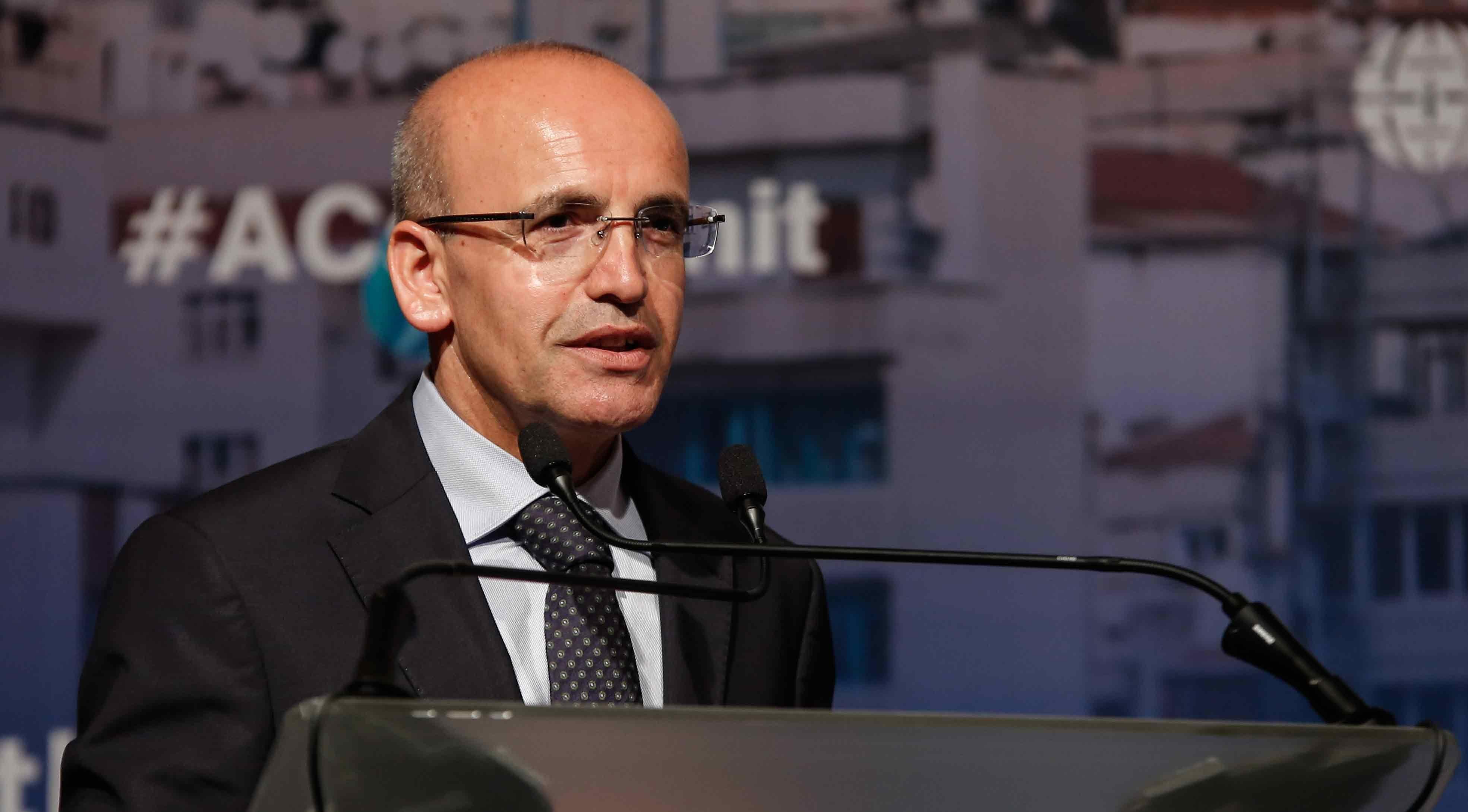
Mehmet Şimşek (File photo)
Turkey needs “deep-rooted, sectoral transformation” in the economy for sustainable growth, Deputy Prime Minister Mehmet Simsek said on June 12.
“A sustainable high growth [rate], comprehensiveness of this growth, and fair income distribution are essential. We need to provide more deep-rooted, sectoral transformation to achieve a sustainable growth of over seven percent, which calls for limiting the side effects i.e. current account gap, inflation,” Şimşek told private Fox TV, as quoted by state-run Anadolu Agency.
His remarks came a day after the Turkish Statistical Institute (TÜİK) revealed that the country’s economy expanded by 7.4 percent in the first quarter of this year compared with the same period last year.
The three-month gross domestic product (GDP) at current prices climbed to around 792.7 billion Turkish liras (nearly $207.5 billion), according to TÜİK data.
Şimşek forecasted growth will be re-balanced after the second half of the year and the domestic demand will ease.
“The Turkish economy has grown on domestic demand,” he said, adding that it created a current account deficit problem.
Fight with high inflation, current account gap
Turkey’s current account deficit hit $5.43 billion in April, marking an increase of $1.7 billion, year-on-year, the Turkish Central Bank announced on June 11.
“Our primary priority is to fight against inflation and decrease current account deficit,” Şimşek said.
The minister added the inflation stemmed from the loss in the value of the lira against other currencies and the increase in the oil prices.
The country’s annual inflation rate was 12.15 percent in May, up from 10.85 percent in April, according to TÜİK on June 4.
‘Saving in public sector’
Şimşek also vowed that the public sector would undertake a comprehensive saving policy.
“We will sincerely examine the spending items, prioritize in which sectors we will limit spending and apply a comprehensive saving strategy. This is the most ideal step,” he added.
Şimşek noted Turkey has a $453.2 billion of gross external debt stock and more than two-thirds of it belongs to the private sector and less than one third belongs to the public sector.
“Turkey’s foreign debt is 53.3 percent of its GDP. When we compare this ratio globally, it is not really high,” he added.